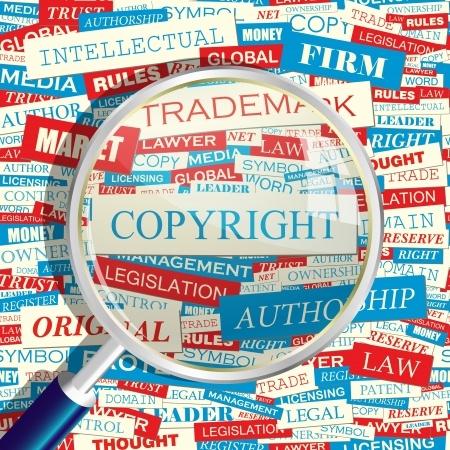According to the World Intellectual Property Association (WIPO), the U.S. copyright industry has a market value of $91.2 billion and represents 5.24 percent of U.S. GDP. Despite the economic importance of copyright, many stakeholders around the world struggle to interpret intellectual property (IP) laws in a digital world.
More and more, law enforcement professionals find themselves fighting crime not in the streets, but on the Internet. As part of digital crime-fighting, law enforcement officials as well as anyone who posts or views IP online should abide by copyright and trademark laws.
Copyright and Trademark Basics
Copyright law protects intellectual works and original creations. These can include literary works, music, visual art, choreography, photography and audiovisual materials. In some cases, copyright law also protects maps, technical drawings and software. Users cannot reproduce, distribute, perform or broadcast the work without obtaining the copyright owner’s permission. Alternatively, trademarks distinguish IP associated with tangible products. A trademark can protect a word, name, slogan, symbol or device unique to a company’s product.
Areas of Dispute
IP law includes obvious issues, like plagiarism, and also some elements that people may not have considered. According to ISACA, some commonly disputed areas of digital IP law involve:
Web design. Copying logos, images and designs from other sites can bring stiff legal penalties. Sometimes, Web designers and their clients argue over who controls the final product. Companies should obtain control over outsourced sites so they can update or reproduce page designs in-house without compromising copyright.
Domain name registration. Domain names often contain identifiers associated with a trademark. Unfortunately, some entities engage in domain name piracy, in which they purchase domain names containing trademarked material and launch pages under those domain names to sell their own products. Alternatively, they may purchase the domain names and then try to sell them back to companies that own the trademark.
Meta tags. Just like domain names, meta tags may usurp trademarked material to trick search engine robots and draw visitors to a website.
Linking and framing. In 1999, Universal Studies sent a letter to a website called Movie List asking the company to stop linking to its movie trailers. From the studio’s perspective, Movie List was pulling Universal’s content onto its website and making the content look like they owned it. Linking and framing can cause problems when the second website doesn’t display the first website’s trademarks or advertisements in exchange for using its content.
General Guidelines for Using Digital IP
When using digital content that may be protected by copyright or trademark, people should take the following precautions:
Cite all sources. Whether writing an article or embedding a YouTube video, make sure to credit the original source. When writing, make sure direct quotations are set apart by either quotation marks or indentation. When summarizing ideas from another source, always credit the source. When possible, link back to the source as a courtesy.
Understand image and video licensing. Content creators can incorporate images and videos that are licensed under Creative Commons provisions as long as they adhere to the attribution instructions. Likewise, they can freely use images in the public domain. However, unless the image is acceptable for educational use — by schools or colleges, not by a how-to website —content creators should always obtain permission before inserting copyrighted images or videos.
Avoid piracy. While it’s great to find a free torrent of a film, music track or software program, many countries enforce stiff penalties and fines for obtaining IP without proper permissions.
Beware of “Robin Hood” thinking. Some people justify copyright and trademark infringement by telling themselves that the creators have enough money anyway or that the product is too expensive. In court, the creator’s financial status or the product’s price has no bearing on the validity of IP protections.
Ultimately, respecting IP law is about respecting the creator’s right to be paid for original work. When the owner of the work licenses it to someone or hands over copyright to another entity, that owner deserves appropriate compensation, whether through payment or attribution, for creating the original material.
